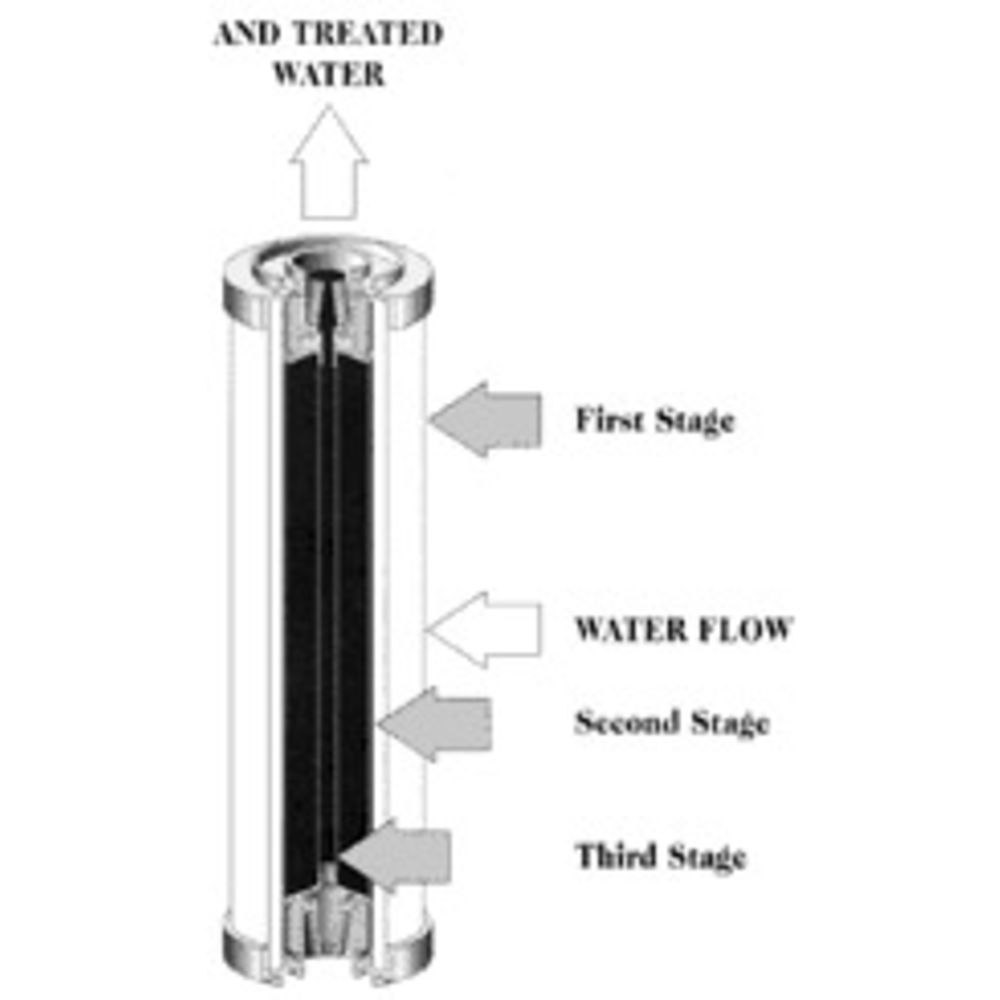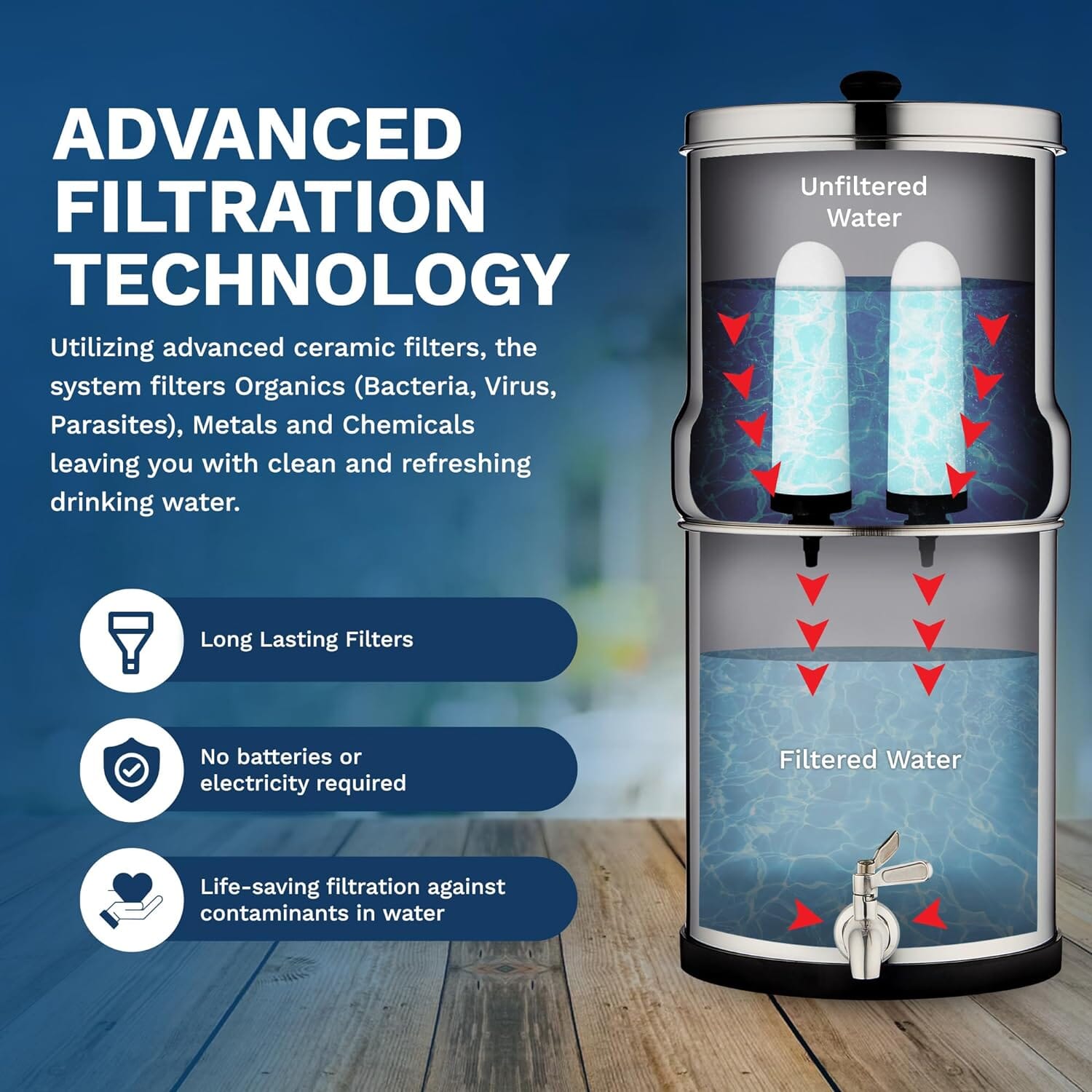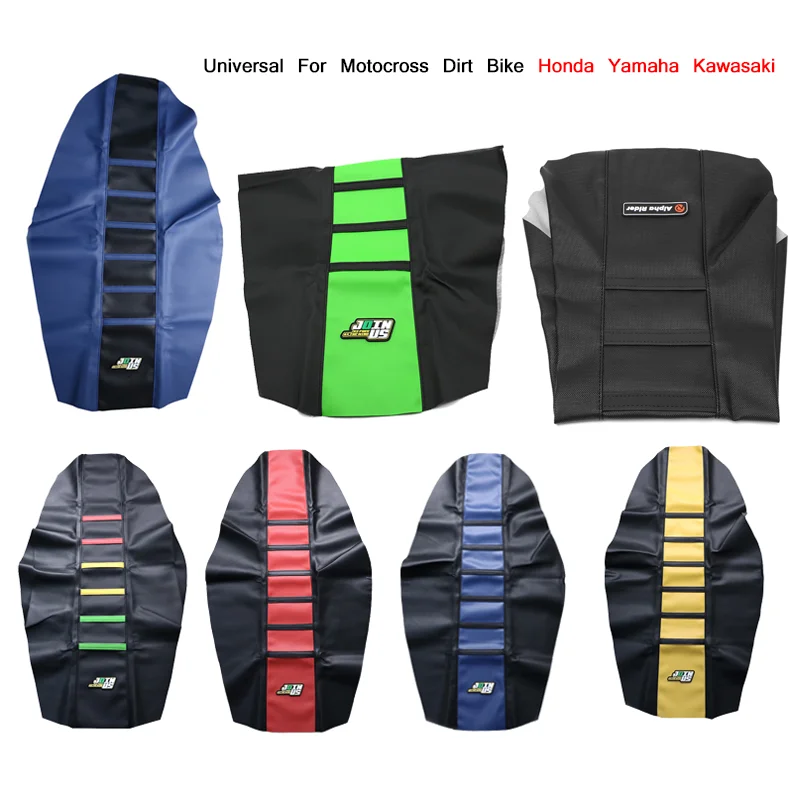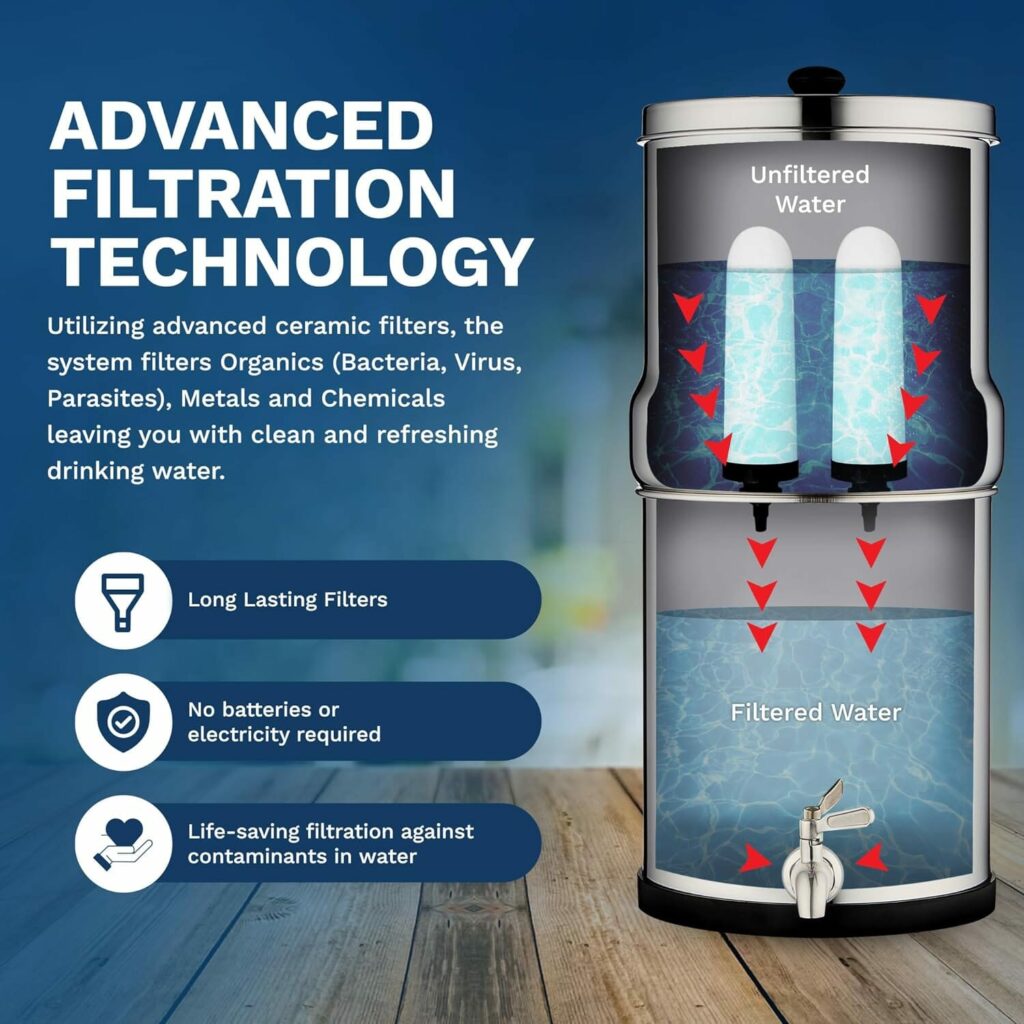Historical Evolution Of Ceramic Filtration Systems
Fast-forward to 1827 in industrial London, where Henry Doulton saw potential in this tradition. He refined those crude clay vessels into gravity-fed ceramic “candles” that slashed cholera and typhoid deaths—early public health records credit his design with nearly halving infection rates in affected districts [5][1]. Suddenly, ingenuity and necessity had teamed up: thousands of homes adopted Doulton’s candles, and the world witnessed the power of low-tech solutions harnessed at scale.

Over the decades, engineers experimented with pore sizes down to precise microns, added silver to zap lingering microbes, and even embedded activated carbon to neutralize odors and chemicals. By the late 20th century, these enhancements turned a humble clay device into a reliable bulwark against waterborne diseases—whether in remote mountain villages or bustling urban slums. Today’s ceramic filtration system stands on that rich heritage, marrying durability and affordability in ways that continue to surprise me every time I reflect on clay’s simple power [2].
The Science Behind Ceramic Filtration
Water’s journey through a ceramic filter is akin to threading a needle under a microscope—only the smallest, safest droplets pass. The secret lies in size exclusion: engineered pores in clay or ceramic materials denser than any kitchen sieve, yet delicate enough to let water molecules slip through. When water encounters those tiny channels, particles larger than the pore get trapped on the surface or within the labyrinthine interior, ensuring anything from sediment to bacteria stays behind [3].
Key components include the ceramic media itself—often shaped into candles or discs—and optional enhancements. Activated carbon granules can be integrated to adsorb chlorine and organic compounds, while silver nanoparticles act as an antimicrobial sentinel at the filter’s surface [1][2]. Whether driven by gravity or pressurized systems, water movement clings contaminants to the ceramic walls while chemical impurities stick to carbon or get inactivated by silver ions.

Filtration unfolds in three stages: mechanical exclusion by the ceramic barrier; adsorption of chemicals if carbon is present; and antimicrobial action where silver is employed. Gravity-fed units drip water slowly, letting each drop undergo maximum contact time, whereas pressure-driven systems push water faster for higher flow rates. Maintenance—usually a gentle brush cleaning—preserves pore integrity and keeps flow rates up. High-end installations often pair a ceramic stage upstream in whole-house setups, boosting lifespan of downstream treatments and cutting overall costs [4][3].
Manufacturing Ceramic Filtration Media
From raw earth to precision-engineered cartridges, making ceramic filtration media blends tradition and technology. It starts with natural clays, silica, and alumina milled into a fine powder, then mixed with water and organic binders like sawdust or rice husks. These binders serve double duty: they give the mix plasticity for shaping and burn away during firing to leave behind micro-channels that become critical filtration pathways [1].
Shaping happens under calibrated pressure—hydraulic presses or extrusion dies mold the slurry into cartridges, candles, or flat discs, depending on intended flow rate and contaminant capture needs [3]. It’s almost magical to see a simple mold produce pores small enough to block bacteria yet large enough to let water glide through.
| Stage | Key Actions |
|---|---|
| Slurry Preparation | Mix clay, binders, and water; mill to uniform particle size |
| Shaping | Use hydraulic presses or extrusion to form cartridges |
| Firing | Sinter at high temperature to fuse particles and burn out organics |
After drying, items enter kilns where sintering bonds the ceramic matrix, creating durability and porosity. Some manufacturers take an extra step—impregnating the fired pieces with silver for long-term antimicrobial action or coating them with activated carbon to tackle odors and chemicals [5]. Quality control checks pore distribution, flow rate, and strength before anything ships out.

Building And Customizing Your Own Ceramic Water Filter
For the hands-on enthusiast, crafting a DIY ceramic filter is both an art and a science. You start by blending clay with organic binders—typically sawdust or rice husks—to yield the pore-creating channels when fired. Aim for a pore size around 0.3 microns to trap bacteria like E. coli and Giardia while maintaining a decent flow rate—ancient engineers nailed this centuries ago, and so can you [1][3][4].
Maria Perez, a blogger I follow, swears by embedding silver nanoparticles into the clay before firing—she reported near-complete inactivation of pathogens after testing her homemade filters. Adding a thin coat of activated carbon inside the housing further refines taste and knocks out chlorine and organic chemicals [2][5].
Once fired and cured, nestle your filter in a food-grade container—stainless steel or BPA-free plastic buckets work wonders. Test the flow by measuring output over five minutes, then tweak pore size next batch if it’s too slow or fast. A gentle monthly scrub with a soft brush keeps sediment at bay. And if you’re itching for more complex setups, multi-stage gravity filters boost capacity and don’t require electricity.
Eco-Friendly And Sustainable Ceramic Filters
Ceramic filters shine not only in performance but in sustainability. Made from locally sourced clay and relying purely on gravity, they sidestep plastic waste and power-hungry pumps. Lifecycle analyses show these filters slash greenhouse gas emissions significantly compared to many electric purifiers—and they replace hundreds of single-use cartridges over their lifespan [1].
I love how a quick scrub can bring a ceramic filter back to life, sometimes extending its service by years. Households find themselves cutting water costs in half and eeking out extra months before needing any replacement parts. It’s a tiny act of stewardship—just a brush and water—and you’ve done your part for both health and planet [3].
For whole-home protection, consider installing a whole-house ceramic filter. It’s a low-maintenance champion of sustainability that guards every tap—showers, sinks, and laundry alike—without a single watt of energy consumption [4].
Practical Tips For Maintaining Ceramic Filters
Every month, inspect and gently scrub your ceramic element under cool running water. A soft-bristled brush dislodges trapped sediment without damaging pores, helping maintain over 90% of original flow even after a year of use [3]. I mark my calendar on the filter base—hard to forget, and easy to keep pace with performance.
Every three to six months, give it a deep clean by soaking in a mild 5% bleach or vinegar solution for about 30 minutes, then rinse thoroughly. This routine disrupts biofilm and keeps bacteria from building up on the surface [2][5]. It’s a simple step that can double your filter’s lifespan.
Avoid harsh detergents or abrasive pads that can crack the ceramic or enlarge pores. Always replace worn gaskets and O-rings promptly to prevent leaks, and if you store your element between uses—especially in seasonal homes—keep it dry and ventilated to block mold growth.
Recent Advancements In Ceramic Filtration Technology
Innovation in ceramic filters is in full swing, pushing pore sizes down to 0.1 microns and blending clay with alumina fibers for unprecedented toughness [3]. These ultra-fine membranes are almost entirely stopping bacteria and sediment, while new graphene-enhanced ceramics promise higher flow rates without compromising safety.
Silver-based antimicrobial coatings have matured, too: modern cartridges maintain over 95% disinfection efficiency after hundreds of cycles, suppressing mold and bacterial regrowth right on the surface [1][4]. Pair that with activated carbon layers, and you get a filter that tackles microbes, chlorine, and foul tastes in one go.
Hybrid designs—combining a ceramic barrier with carbon adsorption—are now migrating from countertop pitchers to whole-house installations. For a look at integrating this next-gen approach, check out our overview of advanced water purification technologies that marry simplicity with cutting-edge performance [5].
Community Impact Of Ceramic Filtration
In villages from Guatemala to Cambodia, ceramic filters have cut diarrhea incidence by up to 60% compared to untreated sources, costing under $20 and lasting years with simple upkeep [3][1][4]. Clinics report dramatic drops in waterborne illness, freeing up time and resources for education and work.
“I used to fear giving water to my children,” recalls María from rural Guatemala. After installing a clay candle filter, her village saw no cholera cases last year. Local cooperatives even train women in molding and firing cartridges, turning filter production into vital micro-enterprises that boost local economies.
These community-led initiatives underscore ceramic filtration’s true power: not just safe water, but sustainable livelihoods built around an age-old technology reborn for modern challenges.
Future Trends And Potential Developments In Ceramic Filtration Systems
Looking ahead, ceramic filters will evolve with nano-engineered pores and smart sensors that predict clogging and auto-order replacements via your smartphone. Researchers are also exploring photocatalytic coatings that break down organic pollutants under sunlight—imagine a filter that literally self-cleans when left in the sun [2][3].
On a global scale, future systems will lean into circular economy principles: clay sourced from recycled local materials, binders made from agricultural waste, and even biochar additives to boost lifespan by 50%. Pilot programs are already delivering whole-home ceramic filtration systems that require minimal maintenance and deliver safe water to entire communities.
The marriage of ancient clay wisdom and cutting-edge nanotechnology promises to extend clean water access while uplifting rural economies—an inspiring vision, indeed.
Summary Of Ceramic Filtration Benefits
From ancient clay pots to high-tech cartridges, ceramic filters endure because they’re simple, effective, and sustainable. Homeowners often say, “Since I switched to ceramic filtration, every glass tastes like a mountain spring,” capturing that crisp purity that only mechanical exclusion can provide [1][4].
They physically block pathogens—bacteria, protozoa, sediment—while optional features like silver impregnation add an antimicrobial edge. These filters shine across contexts, whether in countertop units or industrial air-filtration systems, and they deliver longevity through simple maintenance [3][5][2].
Whether you’re a DIY enthusiast firing a clay candle in your backyard or a utilities engineer designing a whole-house system, ceramic filtration remains a testament to human creativity—proving that sometimes the best solutions are the oldest ones.
“`html
Complete Top Picks Comparison – 20 Products
| Product | Source | Price | Rating | Image | Buy |
|---|---|---|---|---|---|
| Premium Ceramic Water Filter Dome – Replacement Filter for Gravity Water Purifiers – Long-Lasting, High-Efficiency Filtration Compatible With: Max Water 104029, 724282, SHTFandGO SQ51132911 | $0.00 | ★★★★☆ |  | Buy on Amazon | |
| GLACIER FRESH Glass 10 Cup Water Pitcher with 1 Filter of 3X Flow Rate, 5-Stage Filtration Reduces 99% Chlorine and Improve Taste, Eco-Friendly, Bpa Free, White | $0.00 | ★★★★☆ |  | Buy on Amazon | |
| 【Upgraded】Renami Ceramic Filter Silver Infused Replacement for BB9-2® Black Activated Carbon Filters, Compatible with Berkey® Travel, Large, Royal, Crown Series, Repeatable Cleaning Filters, Pack of 2 | $39.99 | ★★★★☆ |  | Buy on Amazon | |
| Katadyn Vario Water Filter, Dual Technology Microfilter for Personal or Small Group Camping, Backpacking or Emergency Preparedness | $109.95 | ★★★★☆ |  | Buy on Amazon | |
| Zen Water – Genuine Micro Ceramic Dome Filter Replacement Exclusively for Zen Water Filter System, Portable Water Purification System Filter | $34.95 | ★★★★☆ |  | Buy on Amazon | |
| MSR MiniWorks EX Backcountry Water Purifier System | $134.95 | ★★★★★ |  | Buy on Amazon | |
| LifeStraw Home – Water Filter Pitcher, 10-Cup, BPA Free Designed for Everyday Protection Against Bacteria, parasites, microplastics, Lead, Mercury, PFAS, and a Variety of Chemicals | $0.00 | ★★★★☆ |  | Buy on Amazon | |
| SimPure Y7P-BW UV Countertop Reverse Osmosis Water Filter, NSF/ANSI 58 Certified, 5 Stage RO Water Filtration System, Water Purifier for Home, 4: 1 Pure to Drain, BPA Free (No Installation Required) | $369.99 | ★★★★☆ |  | Buy on Amazon | |
| Ceramic Dome Water Filter Replacement 0.2 to 0.5 micron for Countertop Water Filter System 4PACK | $0.00 | ★★★★★ |  | Buy on Amazon | |
| Epic Water Filters Pure Filter Pitchers for Drinking Water, 10 Cup 150 Gallon Filter, Tritan BPA Free, Removes Fluoride, Chlorine, Lead, Forever Chemicals (White & Bamboo) | $79.00 | ★★★★☆ |  | Buy on Amazon | |
| Mini Pit Dirt Children Bike Seat Cushion 47cc 49CC Motorcycle Saddle Protection Pad Cover Foam for Apollo Kids Pocket Moto Parts | $12.41 | ☆☆☆☆☆ |  | Buy on AliExpress | |
| Fewfuss Dirt Bike Seat Cover for Surron Sur Ron Ultra Bee Non-slip Waterproof E-bike Seat Cushion | $14.15 | ★★★★★ |  | Buy on AliExpress | |
| Hot Sale Super Power off Road Racing Motorcycle 3000w 5000w Dirt Bike Electric Bike Other Motorcycles | $5829.04 | ☆☆☆☆☆ |  | Buy on AliExpress | |
| E-bike Seat Cover Waterproof Non-slip Saddle Cushion Guard For Ultra Bee Ultrabee Electric Dirt Bike Motorcycle Accessories | $16.05 | ☆☆☆☆☆ |  | Buy on AliExpress | |
| Motorcycle Seat Flat Tall Saddle Seats For Honda XR50 CRF50 50cc Comfort Cushion Saddles Motocross Accessories Dirt Pit Bike | $25.72 | ☆☆☆☆☆ |  | Buy on AliExpress | |
| Goten Seat For 47cc 49cc Mini Dirt Bike | $12.82 | ☆☆☆☆☆ |  | Buy on AliExpress | |
| 2025 Factory Supply 79 bike pro 8500W 74V 90KM/H Off-road Motorcycle E-Dirt Bike Electric Motorcycle for sale | $5262.89 | ☆☆☆☆☆ |  | Buy on AliExpress | |
| Seat Cushion Thicken Seat for Talaria – Stylish Seat for Talaria Sting MX3 MX4 Electric Dirt Bike Black | $30.01 | ★★★★☆ |  | Buy on AliExpress | |
| Electric Motorcycle Seat For Sur -Ron About Surron Light Bee S X Enduro Dirt Bike Fram Motocross | $12.71 | ★★★★☆ |  | Buy on AliExpress | |
| Universal Ribbed Gripper Soft Seat Cover For KAWASAKI SX SXF XC XC-W XC-F YZF EXC-F 125 250 350 450 501 701 Dirt Bike Off Road | $11.71 | ★★★★★ |  | Buy on AliExpress |
“`

